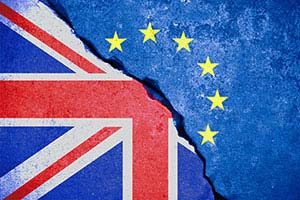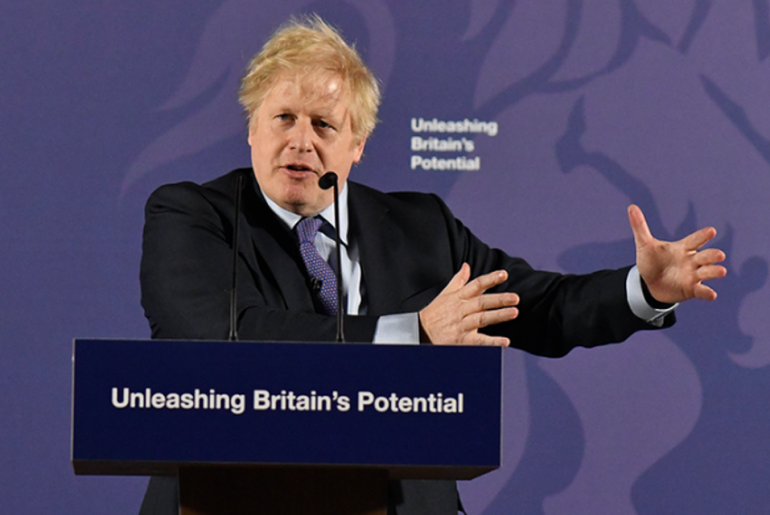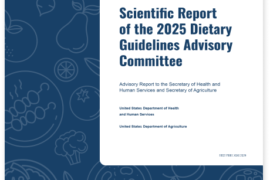While the United Kingdom officially parted company with the European Union when the clock struck 11 PM in Britain (midnight in Brussels) on January 31, its post-Brexit commercial relationship with the continent still has to be thrashed out. Prime Minister Boris Johnson has made it clear that he would not accept EU standards as a price to pay in order to secure a free trade deal.
“We have made our choice: we want a free trade agreement, similar to Canada’s. There is no need for a free trade agreement to involve accepting EU rules on competition policy, subsidies, social protection, the environment or anything similar, any more than the EU should be obliged to accept UK rule,” said Johnson during a speech entitled “Unleashing Britain’s Potential” that was delivered at the Old Naval College in Greenwich on February 3.
In response to the Prime Minister’s speech, Food & Drink Federation (FDF) Chief Executive Ian Wright had this to say:
“The ultimate judge of the success of the forthcoming negotiations will be UK consumers and shoppers, who will rightly expect the same – or better – choice, quality and price for their food and drink.
“The EU market is the largest source of UK food imports and the largest destination for UK food exports. This fact is driven by geography, shelf life and customer tastes. Introducing friction into those supply chains will have implications for our largest manufacturing sector and for all food and drink consumers.
“It is critical, therefore, that we carefully assess the costs and benefits of any changes to our trading relationship with the EU – and balance them against new opportunities we want to seize for easier food trade with the rest of the world. We also need generous rules of origin that support our food and drink exports success story and recognize the global nature of UK food and drink supply chains.
“As the Prime Minister referenced in his speech, the provenance and high quality of UK food and drink is an essential selling point overseas. We urge UK and EU negotiators to take a common sense approach to recognizing equivalent food standards so we do not inadvertently raise barriers to trade. We are working closely with the UK Government to identify new trading opportunities and to keep tariffs, quotas, product checks and inspections at the border to the barest minimum.”

Policy Paper Issued
Meanwhile, on January 27, organizations from across the UK food and drink supply chain launched a policy outlining common themes the government should use to develop future trade policy, as negotiations between Britain and other nations begin.
The paper has been developed by the cross-sectoral Food and Drink Industry Brexit Roundtable, convened by the FDF, and the separate Arable and Livestock stakeholder groups advising Defra. Their views focus on how the agri-food industry can take advantage of the opportunities created by leaving the European Union. The ambition is for a future UK trade policy that will drive growth, promote efficient and sustainable food production and stimulate innovation, while providing consumers and shoppers with even greater choice and better value.
The key recommendations outlined within the paper focus on trade policy priorities, principles, and the process of trade policy development. The recommendations include:
- Accommodating Rules of Origin and ensuring they are tailored to meet the needs of the industry;
- Giving businesses time to adapt to changes in competitive positioning arising from the creation of new trade agreements;
- Thought being given to the benefits and costs of choosing to move away from existing regulatory technical standards;
- Encouraging job creation and value addition in every region of the UK by prioritizing agri-food;
- Retaining the UK’s ability to deliver high standards at competitive consumer prices; and
- Encouraging sustainable food production, while diminishing environmental impacts.
“Food and drink businesses operate throughout the UK, creating jobs and income for people in every constituency. That is why we want to work with Government to ensure that we have the right policies to make a success of the UK’s independent status, maintain our high food standards, improve our ability to deliver sustainably produced food at competitive prices and ensure these benefits are felt throughout the country,” said Alex Waugh, director general of Nabim and chairman of the Brexit Arable Group.
“The food and drink industry is absolutely committed to working with government and the devolved administrations on the development of more detailed plans and practical solutions for our vital industry as we leave the EU,” said FDF Chief Executive Ian Wright, who is also chairman of the Food and Drink Roundtable. “No industry is more uniquely placed to deliver the benefits of trade to every UK community. Together our supply chain produces, packages, distributes and sells a wide range of food and drink at every price point, more than ever before, in every corner of the United Kingdom.”






